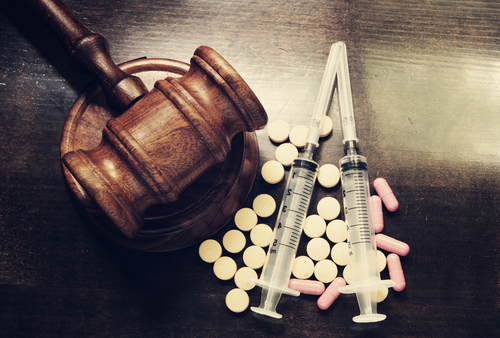Spitting on someone is often dismissed as a mere rude or distasteful act, but under the law, it can carry serious legal consequences. In New Jersey, spitting on another person can indeed be classified as assault. This classification arises from the fact that saliva can potentially transmit diseases; thus, the act of spitting is considered not just an invasion of personal space but also a direct threat to another’s health and safety. Legally, if someone intentionally spits on another person, it is often treated as simple assault because this action involves knowingly causing, or attempting to cause, bodily injury to someone.
If you or someone you know has been charged with assault for spitting on someone, it’s crucial to understand the gravity of the charge and its potential impact on your future. At Lustberg Law Offices, LLC, our experienced New Jersey simple assault lawyers can provide a strong defense strategy to challenge the charges against you. We understand the nuances of assault laws and are committed to protecting your rights while striving for the best possible outcome for your situation. Contact us at (201) 880-5311 today to discuss your case and learn how we can assist you during this challenging time.
Understanding Assault Charges in New Jersey
Assault charges in New Jersey can range from relatively minor offenses to serious criminal charges, depending on the circumstances of the incident and the degree of harm caused. When facing an assault accusation in the state, it is crucial to understand the distinctions between different types of assault and the role intent plays in these charges.
Assault Under New Jersey Law
In New Jersey, assault involves the intentional creation of a reasonable fear or apprehension of imminent bodily harm. It can also involve actual physical harm to another person. Assault charges are governed by New Jersey’s criminal statutes, and the nature of the charge can vary based on the severity of the harm caused and the intent behind the actions.
Types of Assault Charges Recognized in New Jersey
New Jersey law recognizes several types of assault, each with varying degrees of severity and associated legal consequences. The primary categories include:
- Simple Assault [N.J.S.A. 2C:12-1(a)]: Simple assault occurs when a person knowingly, purposely, or recklessly causes bodily harm to another or puts them in reasonable fear of harm. Simple assault is considered the least severe form of assault and is typically charged as a disorderly persons offense in New Jersey. However, even simple assault can result in significant consequences, including fines, probation, or jail time.
- Aggravated Assault [N.J.S.A. 2C:12-1(b)]: Aggravated assault is a more serious offense. This charge applies when a person commits simple assault but with an added element of recklessness or use of a deadly weapon. It can also involve extreme indifference to human life. Aggravated assault is often classified as a more severe crime, resulting in harsher penalties, including potential prison sentences.
- Assault by Automobile [N.J.S.A. 2C:12-1(c)]: This type of assault occurs when a driver causes harm to another person through reckless driving. The severity of the charge is determined by the extent of the injuries suffered by the victim. In cases of severe injuries or fatality, the penalties for assault by automobile can be severe, including imprisonment.

The Role of Intent in Assault Charges
Intent plays a critical role in determining the nature of an assault charge. Under New Jersey law, a person can be charged with assault if they act with a specific intent, which can be broken down into three main categories:
- Purposely: The individual has a clear intention to cause harm or engage in conduct that results in harm.
- Knowingly: The individual is aware that their actions are likely to cause harm, even if that is not their primary goal.
- Recklessly: The individual disregards a significant and unjustifiable risk that their actions could cause harm. Reckless behavior falls short of intent but still carries serious consequences.
For anyone facing assault charges in New Jersey, comprehending these distinctions is vital, as specific intent can significantly influence both the charges themselves and the potential outcome of the case. This underscores the importance of having knowledgeable legal representation to effectively address New Jersey’s assault laws.
Specifics of Spitting as an Assaultive Act
In New Jersey, assault charges are not limited to acts of physical violence. Certain actions, such as spitting, can be considered assaultive if they meet specific legal criteria. For individuals facing charges related to spitting, knowing when and how such an act qualifies as assault can be a significant advantage.
Is Spitting on Someone Considered Assault?
Spitting on someone can be considered assault under New Jersey law. While it may not involve physical injury, spitting is classified as an offensive or harmful act. The key factor is that spitting is intentional, and if the victim reasonably perceives it as harmful or offensive, the act can meet the threshold for simple assault. This is particularly true if the spitting creates a reasonable fear of harm or if the individual’s health is put at risk due to the potential transmission of diseases through saliva.
Spitting is seen as an offensive contact, and New Jersey’s assault statutes recognize that assault can occur even in the absence of significant physical force, provided the action is intentional and offensive to the victim.
Why Spitting on Someone is Considered Harmful or Offensive
Spitting is widely regarded as one of the most disrespectful and degrading actions one can inflict on another person. This is because it involves contact with another person’s bodily fluids, which many people find repulsive. From a legal perspective, spitting is not only offensive but potentially harmful. Human saliva contains millions of bacteria and microbes, which can transmit infectious diseases. For this reason, spitting on someone can pose a serious health risk, which is why New Jersey law treats it as an assaultive act.
In some cases, the emotional and psychological impact of being spat on may even be more significant than physical harm. For victims, the act of spitting can evoke feelings of humiliation, disgust, and violation, which is why courts often view this behavior as assault when it is intended to harm or demean another individual.
If you are facing assault charges related to spitting in New Jersey, seeking guidance from a knowledgeable assault lawyer is crucial. The team at Lustberg Law Offices, LLC, understands the nuances of the law and can assist you in addressing your case. We are dedicated to protecting your rights and providing a robust defense to mitigate the consequences of the allegations against you. Contact us to discuss your situation and explore your legal options.
The Consequences of Being Charged with Assault for Spitting
Being charged with assault for spitting may seem like a minor incident, but it can carry significant legal consequences in New Jersey. Although spitting may not result in physical harm, it is considered offensive and harmful, making it a punishable offense under New Jersey’s assault laws.
Potential Penalties and Fines for Simple Assault
In New Jersey, spitting on someone is typically charged as simple assault, which is classified as a disorderly persons offense. A conviction for simple assault can lead to serious penalties, including:
- Up to six months in jail
- A fine of up to $1,000
- Possible probation
- Court-ordered anger management classes
Though spitting may not seem as severe as other forms of assault, the penalties reflect the law’s emphasis on protecting individuals from offensive and harmful acts. Even a first-time offense can result in jail time, fines, and additional requirements, depending on the specifics of the case.
Impact on Criminal Record and Future Implications
A conviction for simple assault, even for something as seemingly minor as spitting, can have lasting repercussions. A simple assault conviction will appear on your criminal record, and it can affect various aspects of your life, including:
- Employment opportunities: Many employers conduct background checks, and a conviction for assault could lead to job disqualification, especially in fields that require trust, security, or public interaction.
- Education and professional licenses: Colleges, universities, and licensing boards may view assault convictions negatively, impacting your ability to pursue higher education or professional certifications.
- Travel restrictions: Convictions can lead to issues during travel, such as being flagged at airport security or facing scrutiny during border crossings.
Though simple assault may not carry the same weight as a more violent crime, it can still be seen as a sign of aggressive behavior, which may complicate your personal and professional life for years to come.
Possible Defenses Against a Charge of Assault by Spitting
If you have been charged with simple assault for spitting, there are several defenses that may help mitigate or dismiss the charges:
- Self-defense: If the spitting occurred during a confrontation in which you were defending yourself from harm, this defense could be used to argue that your actions were a response to being threatened or attacked.
- Lack of intent: Assault charges require that the accused acted intentionally. If you can demonstrate that the spitting was accidental or that there was no intent to cause harm or offense, this can serve as a valid defense.
- Misidentification: In chaotic situations, such as a fight or crowded event, it is possible for the wrong person to be identified as the perpetrator. Proving that you were not involved, perhaps through witness testimony or video evidence, could lead to a dismissal of charges.
- Lack of mental state: This defense argues that the accused lacked the necessary mental state to commit assault, whether due to impairment or other factors. Demonstrating that you were not in control of your actions could serve as a defense in certain cases.
Each case of assault, including spitting, is unique, and the specific circumstances will influence the defense strategy. If facing such charges, consulting with a New Jersey assault lawyer from Lustberg Law Offices, LLC is crucial to understanding your rights and options. Contact us today to schedule a consultation.
| Defense | Description |
|---|---|
| Self-defense | Argues that the spitting occurred as a response to a threat or attack, justifying the action as necessary to protect oneself from harm. |
| Lack of Intent | Demonstrates that the spitting was accidental or that there was no intention to cause harm or offense, undermining the grounds for an assault charge. |
| Misidentification | Proves that the wrong individual was identified as the perpetrator, with evidence like witness testimony or video footage showing that you were not involved in the incident. |
| Lack of Mental State | Asserts that the accused lacked the necessary mental state to intentionally commit assault, potentially due to impairment or other factors affecting control over actions. |
How to Respond If You Are Accused of Assault by Spitting
Being accused of assault, even for something as seemingly minor as spitting, can be a serious legal matter in New Jersey. Responding promptly and appropriately is key to protecting your rights and improving your chances of achieving a favorable outcome.
Steps to Take Immediately After Being Accused
If you are accused of assault by spitting, the actions you take immediately following the accusation can significantly impact your case:
- Remain calm: It’s important to stay calm and avoid escalating the situation. Any additional confrontation could make things worse and lead to more severe charges.
- Do not admit guilt: You have the right to remain silent, and it’s often best to avoid making any statements or admissions to the police without speaking to an attorney first.
- Document the situation: If possible, gather any evidence that may help your case, such as witness contact information, video footage, or photographs. This information could be crucial in establishing your version of events.
- Contact an attorney immediately: Assault charges, even for simple assault, should not be taken lightly. Speaking with a skilled New Jersey assault lawyer as soon as possible will help you understand your rights and begin preparing a defense.
What Evidence Can Prove or Disprove Assault by Spitting?
Facing an accusation of assault by spitting can be deeply unsettling. You are likely concerned about what this means for you and what kind of proof is involved. In New Jersey, spitting on someone can be treated as a simple assault under N.J.S.A. 2C:12-1a, as it is considered offensive or provocative physical contact, even if it does not cause injury.
To build a case for assault by spitting, the prosecution will often rely on several key pieces of evidence. Conversely, the same types of evidence can be used to build a strong defense.
- Eyewitness Testimony: One of the most common forms of evidence is the testimony of individuals who saw the incident occur. Their accounts can either support the accuser’s version of events or corroborate your side of the story. The credibility of these witnesses, based on their bias, perspective, or consistency, is often central to the case.
- Video Footage: In today’s world, cameras are nearly everywhere. Surveillance footage from businesses, cell phone recordings, or police body cameras can provide a clear and objective record of what happened. This evidence can be incredibly powerful in either proving the act occurred or demonstrating that it did not, or that the situation was not as the accuser claims.
- DNA Evidence: Saliva contains DNA, which is unique to each individual. In rare cases, DNA testing of saliva on the victim’s clothing or skin could link the act to a specific person, though such testing is uncommon in simple assault cases due to cost and time constraints. If conducted, a DNA match can support the prosecution, while a non-match can be strong evidence for the defense. The absence of DNA does not automatically disprove the accusation if other evidence exists.
- Police Reports: The initial report filed by law enforcement will contain the accuser’s statement and the officer’s observations at the scene. Examining this report for inconsistencies or inaccuracies can be a crucial part of your defense.
If you are dealing with this situation, it is critical to respond strategically. An experienced attorney can help you understand the evidence, challenge the prosecution’s case, and develop a defense tailored to your unique circumstances, such as mistaken identity, lack of intent, or fabrication by the accuser.
Importance of Legal Representation in Assault Cases
Legal representation is crucial when facing assault charges in New Jersey. Although spitting may seem like a minor offense, the consequences of a conviction can be significant. Here’s why having an experienced attorney is essential:
- Navigating the legal system: Assault cases typically involve multiple court appearances and legal filings. An attorney will represent you at these hearings, negotiate with the prosecutor, and ensure that all legal procedures are followed to protect your rights.
- Personalized legal strategies: Every assault case is unique, and your attorney will develop a tailored defense strategy based on the specifics of your situation. This may involve gathering evidence, interviewing witnesses, or consulting professionals to counter the prosecution’s claims.
- Exploring defense options: Depending on the circumstances, you may have several defense options available. A knowledgeable lawyer will work to present the strongest defense possible, which could lead to a reduction in charges or dismissal of the case.
Getting the Help of a Skilled Assault Attorney at Lustberg Law Offices, LLC
For anyone facing accusations of assault, particularly in cases involving seemingly minor actions like spitting, a thorough grasp of the nuances of assault charges is essential. In New Jersey, the legal implications of being convicted of assault can be significant and may include penalties such as fines or even jail time. Beyond the immediate legal consequences, a conviction can also have long-lasting effects on one’s personal and professional life, affecting everything from job opportunities to personal relationships.
If you find yourself in a situation where you are accused of assaulting someone by spitting, it is essential to seek knowledgeable and experienced legal representation immediately. At Lustberg Law Offices, LLC, our New Jersey simple assault lawyers are well-versed in New Jersey’s assault laws and have a proven track record of defending clients against simple assault charges. We can work diligently to evaluate the specifics of your case, develop an effective defense strategy, and advocate on your behalf, aiming to reduce or dismiss the charges where possible. Contact us at (201) 880-5311 today to learn how we can guide you through each step of the legal process.






